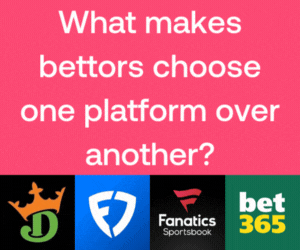Willbet Slots game online
Vinn upp till 10 000x i ny Thunderkick slot med äventyrstema
Glitnor & Roar Vegas får sammanlagt betala över 30 miljoner kr i böter
Alabama's Gambling Effort Stalls in Senate
Analysts predict gambling resilience amid Trump tariffs turbulence
Willbet Free slots
Ett stort nätverk av olicensierade spelsidor i Europa
Hjälp giriga Alice lägga vantarna på 20 000x
Fitzdares Discontinues iGaming Operations in Ontario
Trump Tariffs Affect Alberta’s VLT Buys
MLB Over/Under Best Bet: Atlanta Braves vs. Tampa Bay Rays, April 13
willbet Soccer game Google
‘I’m Long Bitcoin (BTC),’ Reveals Legendary Trader Peter Brandt
BetMGM utsedd till Årets online casino på GGA 2025
Atlantic Lottery CEO Concerned about Illegal Gambling
willbet poker
Casino Cosmopol – Sveriges sista statliga casino och varför det skrotas
En läcker och annorlunda Egypten
MLB Over/Under Best Bet: Atlanta Braves vs. Tampa Bay Rays, April 13
location:Willbet Online Casino Games | Play Casino Online >Willbet Free casino >【Bet365 App Android aktualisieren】Brazil Senate to discuss complete ban on betting ads
- Willbet Free casinoTwitterHeartFacebook
CFTC prediction markets feedback shows fractured approach
 The Bet365 App Android aktualisierenBrazil Senate Sports Commission (CEsp) is set to deliberate on a bill that seeks to ban all fixed-odds betting advertisements across various channels and mediums.
The Bet365 App Android aktualisierenBrazil Senate Sports Commission (CEsp) is set to deliberate on a bill that seeks to ban all fixed-odds betting advertisements across various channels and mediums.
 The proposed legislation, authored by Sen. Styvenson Valentim, updates Article 33 of Law No. 13,756/2018, which originally established the regulatory framework for fixed-odds sports betting in the country.
The proposed legislation, authored by Sen. Styvenson Valentim, updates Article 33 of Law No. 13,756/2018, which originally established the regulatory framework for fixed-odds sports betting in the country.Valentim’s push for an outright prohibition on gambling advertisements stems from concerns that current regulations are not being properly enforced, particularly in relation to younger audiences.
According to the senator, the accessibility of online betting platforms has made it easier for impulsive behaviour to take root, especially among young people who can place bets at any time with minimal restrictions.
The Sports Commission is scheduled to analyse the bill in a meeting on 12 March.
Following its review, the proposal will move to the Communication and Digital Law Commission (CCDD), which will determine whether the bill advances further in the legislative process.
Continuing to tweak the industry
Brazil has already implemented measures to restrict gambling-related advertisements, with gambling regulator the Secretariat of Prizes and Bets introducing new rules last December.
These restrictions were originally intended to be enforced from 1 January of this year, coinciding with the official launch of the regulated betting market. However, they were put into effect immediately.
Among the key restrictions introduced were bans on advertisements targeting minors or being broadcast on platforms where children and adolescents constitute the primary audience.
Additionally, all gambling ads must include a clear warning, such as an “18+” symbol or a statement declaring that betting is prohibited for individuals under 18 years old.
Despite these existing limitations, Valentim and other proponents of the new bill argue that further measures are necessary to curb the influence of betting advertisements, particularly as gambling operators continue to find ways to market their services.
Proposal finds support from gambling opposition
Sen. Carlos Portinho, a longtime critic of certain aspects of Brazil’s betting laws, has voiced strong support for Valentim’s proposal. He previously attempted to exclude iGaming from the country’s gambling legislation but was unsuccessful.
In addition to backing the proposed ban, Portinho has introduced several amendments in attempts to further restrict gambling advertising.
His proposed changes have included prohibiting betting advertisements on the radio between 10pm and 6am, as well as implementing a complete ban on gambling-related promotions in both printed and electronic media.
Another amendment from the senator would prevent the use of athletes and other public figures in betting advertisements.
He also seeks to outlaw the use of direct marketing strategies such as text messages and mobile notifications to promote gambling services, and to prohibit the use of social media personalities in promoting gambling and betting activity.



